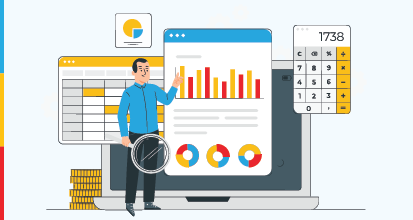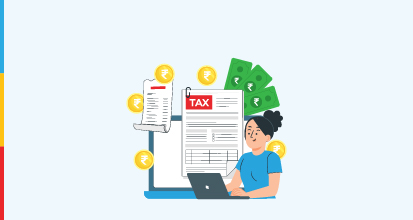Written by : Knowledge Center Team
2025-12-19
1037 Views
9 minutes read
Share
Payment of taxes eats up a significant portion of one's savings. This is especially true when one is not aware of the benefits that can come from tax planning. Tax planning is a process that involves several steps meant to decrease one's liabilities and tax payments. This is a completely legal process and can be a challenge for novices. However, it is essential to understand a few core concepts regarding it to carry out tax planning.
Tax Planning offers several advantages. In a nutshell, an individual receives four benefits by planning their tax payments.
In order to begin the process of tax planning, it is essential to understand the steps that one has to undertake.
Income Slabs or Annual Income | Tax Payable |
Up to ₹ 3 Lakh | NIL |
₹5 Lakh To ₹7 Lakh | 5 % |
₹ 7 Lakh to ₹ 10 Lakh | 10 % |
₹ 10- ₹12 Lakh | 15 % |
Above ₹ 15 Lakh | 30 % |
The above categories are also known as tax brackets. One can lower the tax payable through certain methods like claiming a tax exemption for house rent allowance as well as leave travel allowance and more. This will be discussed in detail further.
An OTP has been sent to your mobile number

Sorry! No records Found
Thank you for your interest in our product. Our financial expert will connect with you shortly to help you choose the best plan.
Section 80 comes with a number of subsections that one can utilize to make the most of exemptions and deductibles. The schemes under this section function as tax saving instruments.
Disclaimer - This article is issued in the general public interest and meant for general information purposes only. The views expressed in this blog are solely those of the writer and do not necessarily reflect the official policy or position of Canara HSBC Life Insurance Company Limited or any affiliated entity. We make no representations or warranties of any kind, express or implied, about the completeness, accuracy, reliability, suitability, or availability with respect to the blog or the information, products, services, or related graphics contained in the blog for any purpose. Any reliance you place on such information is therefore strictly at your own risk. You should consult with a qualified professional regarding your specific circumstances before taking any action based on the content provided herein.
We bring you a collection of popular Canara HSBC life insurance plans. Forget the dusty brochures and endless offline visits! Dive into the features of our top-selling online insurance plans and buy the one that meets your goals and requirements. You and your wallet will be thankful in the future as we brighten up your financial future with these plans.





